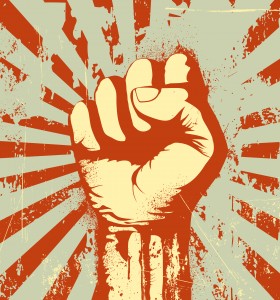Philanthropy is commendable, but it must not cause the philanthropist to overlook the circumstances of economic injustice which make philanthropy necessary.~Martin Luther King, Jr
Community and justice can not be spoken about if we do not talk about the elephant in the room– economic injustice.
One definition of justice is “giving to each what he or she is due.” The problem is knowing what is “due”.
Justice and charity are not the same thing. Charity compels us to give to relive suffering. Justice speaks to allowing a person to not need charity, but actually become charitable himself.
Economic injustice involves our failure to provide individuals with basic necessities of life. Access to adequate food and housing, and its maintenance of huge discrepancies in wealth.
Charity or Philanthropy are never substitutes for justice.
Economic injustice is what makes philanthropy necessary.
Facts
- The combined wealth of the world’s 200 richest people hit $1 trillion in 1999; the combined income of 582 million people living in the 43 least developed countries is $146 billion.
- The Gross Domestic Product (GDP) of the poorest 48 nations (i.e. a quarter of the world’s countries) is less than the wealth of the world’s three richest people combined.
- A few hundred millionaires now own as much wealth as the world’s poorest 2.5 billion people.
- 20% of the people in developed nations consume 86% of the world’s goods.
- 12% of the world’s population uses 85 percent of its water.
- Globally, 20% of the world’s people in the highest-income countries account for 86% of total private consumption expenditures – the poorest 20% account for a minuscule 1.3%. Specifically, the richest fifth (1/5):
- Consume 45% of all meat and fish, the poorest fifth consume 5%.
- Use 58% of the total energy, the poorest fifth use less than 4%.
- Have 74% of all telephone lines, the poorest fifth have 1.5%.
- Consume 84% of all paper, the poorest fifth use 1.1%.
- Own 87% of the world’s vehicle fleet, while the poorest fifth own less than 1%.
- An analysis of past trends shows that the gap between the richest and poorest countries are increasing:
- In 1820, it was 5 to 1.
- In 1913, it was 11 to 1.
- In the 1950s, it was 35 to 1.
- In 1973, it was 44 to 1.
- In 1992, it was 72 to 1.
- The cost of providing basic health care and nutrition for all people in the world would be less than the annual cost of pet food in Europe and the United States.
I could go on but I will not.
We have a dirty little secret in the nonprofit sector. It is our elephant in the room–our lack of paying staff livable wages.
We talk about helping and supporting communities while not always helping our own. Economic justice is ultimately about moral principles. The principles which guide us as we design organizations.
They show what we value…who we are. You can not advocate for fair housing if you yourself do not pay your staff a livable wage so they can live in decent shelter. You can not protest for better healthcare if you do not offer adequate healthcare to your own staff.
Having staff that feel chronic deprivation and/or harsh living conditions is unacceptable. Many folks in our sector feel this way every day. They often feel unsafe, insecure, and powerless. In our own way we enable the system we work hard against every day.
We are here to change the status quo, not protect it.
Let us start with ourselves.

